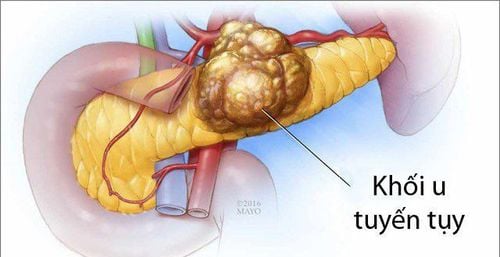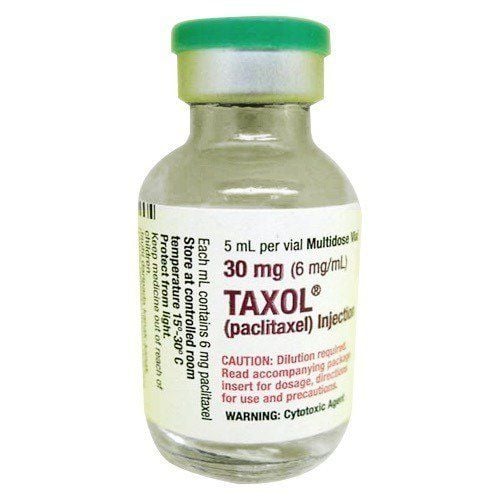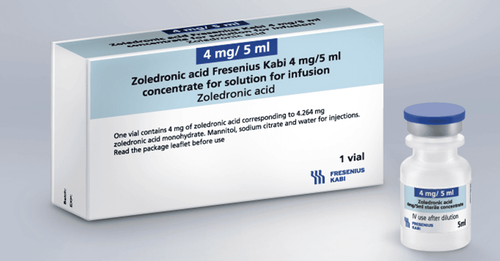This is an automatically translated article.
At first, pancreatic cancer has very vague manifestations, so it is difficult to diagnose early. Significant weight loss with abdominal pain is a typical warning sign of pancreatic cancer. Other pancreatic cancer symptoms may include yellowing of the skin and eyes, dark urine, light colored stools...
1. Pancreatic Cancer Overview
Pancreatic cancer begins in the tissues of the pancreas - an organ located in the abdomen, behind and below the stomach. The role of the pancreas is to release enzymes that aid in digestion and produce hormones that help control blood sugar (insulin).
Some benign tumors and malignant cancer cells can form and grow in the pancreas. The most common type of pancreatic cancer is malignant cells that start in the ducts that carry digestive enzymes out of the pancreas (ductal cancer).

Pancreatic cancer is rarely found in its early stages - when it is easiest to treat, because the disease usually doesn't cause symptoms until it has spread to other organs.
The cause of pancreatic cancer is unknown, but doctors have identified several factors that can increase the risk of this type of cancer, including smoking and certain inherited gene mutations.
Treatment options for pancreatic cancer will be based on the extent of the disease, which may include surgery, chemotherapy, radiation therapy, or a combination of radiation and chemotherapy to treat cancer.
Trắc nghiệm: Bạn biết gì về các yếu tố nguy cơ, chẩn đoán và điều trị ung thư tuyến tụy?
Ung thư tuyến tụy phổ biến thứ 10 trong những bệnh ung thư mới và là nguyên nhân thứ 4 gây tử vong do ung thư ở nam, nữ. Bài trắc nghiệm này sẽ kiểm tra kiến thức của bạn về các yếu tố nguy cơ, chẩn đoán và cách điều trị ung thư tuyến tụy.
Bài viết tham khảo nguồn: medicalnewstoday 2019
2. Symptoms of Pancreatic Cancer
In the early stages, pancreatic cancer presents few symptoms, but most are quite vague. The signs of pancreatic cancer are also very easy to confuse with common digestive problems. That is why the disease is rarely detected early. Most cases are diagnosed when the tumor has spread to nearby tissues or distant organs through the blood and lymphatic system.
As mentioned, the signs of pancreatic cancer usually do not appear until the disease is advanced. In general, symptoms of pancreatic cancer can include:
Abdominal pain that radiates to the back: Mild abdominal pain and tingling, which may decrease when leaning forward and increase when lying down. Pain is often severe at night and may radiate to the lower back; Gastrointestinal or intestinal problems such as: Diarrhea, constipation, bloating, gas or belching; Nausea, vomiting and loss of appetite, loss of appetite; Unintended weight loss; Jaundice of the skin and eyes (not accompanied by abdominal pain); Light, black, or bloody stools (gastrointestinal bleeding); Dark urine; Skin itching; Have a blood clot in your leg (thrombosis); Sudden onset of impaired glucose tolerance (diabetes); Enlarged liver and gallbladder; Mood swings, onset of depression; Constantly tired and weak. People who have just been diagnosed with diabetes or whose current diabetes condition becomes difficult to control is also one of the telltale signs of pancreatic cancer.

Some rare types of pancreatic cancer throw off hormonal balance, which can lead to symptoms such as:
Low blood sugar makes you weak, sweaty, fast heartbeat, irritability or skin redness; Severe diarrhea; Unusual skin rash; Severe gastrointestinal symptoms, including: Stomach pain and diarrhea, unresponsive to antacids or ulcer medications. If you experience any of the above symptoms with no explanation, or suspect you have a problem with your pancreas, see your doctor for a checkup. Many other health conditions can mimic pancreatic cancer symptoms, so you'll need some tests to confirm a diagnosis.

>> See more : Molecular biology test in pancreatic cancer diagnosis – Posted by Master, Doctor Mai Vien Phuong - Department of Examination & Internal Medicine - Vinmec Central Park International General Hospital
3. Complications and prevention
Advanced pancreatic cancer can lead to complications such as:
Weight loss: Cancer cells consume the body's energy, cancer treatment causes nausea and vomiting, tumor presses on the stomach causing obstructing eating, the body cannot absorb nutrients from food... are the causes of people with pancreatic cancer to lose weight seriously; Jaundice: Pancreatic cancer blocks the bile ducts of the liver, which can cause yellowing of the skin and eyes, dark urine, and light-colored stools. The patient may have to have a bile duct stent placed to keep the bile flowing smoothly; Pain: The growing tumor can press on nerves in the patient's abdomen, causing severe pain. Besides pain medication, cancer treatments (such as radiation and chemotherapy) can also help slow tumor growth and limit pain. If the pain is severe, your doctor may inject drugs into the nerves that control pain to block sending pain signals to the brain; Intestinal obstruction: Tumors in the pancreas can block the flow of digested food from the stomach into the small intestine (duodenum). The patient will need to have a stent placed in the intestine or surgically placed a feeding tube.

In general, you can reduce your risk of pancreatic cancer by:
Quit smoking: If you have trouble quitting smoking, you can ask your doctor about methods to help you quit smoking, in that includes medication and nicotine replacement therapy; Maintain a healthy weight: Overweight people should aim for slow, steady weight loss of 0.5 - 1 kg per week. Combining daily exercise with a diet rich in vegetables, fruits and whole grains, as well as dividing meals throughout the day will help you lose weight safely and more effectively; Consume healthy foods: It is important to eat enough fruits and vegetables of all kinds, as well as choose whole grains to reduce the risk of cancer. If you have a family history of pancreatic cancer, talk to your doctor for advice on the necessary screening tests. Periodic general health examination, combined with medical history declaration, not only helps to screen the risk of pancreatic cancer, but also detects other diseases early for timely treatment.

Early cancer screening is considered a perfect measure in the timely detection and treatment of all types of cancer. Reduce the cost of treatment and especially reduce the mortality rate in patients. Vinmec International General Hospital always deploys and introduces to customers a HIGH-TECH CANCER CHECKLIST PACKAGE to help with gene testing, imaging, and biomarkers for early tumor detection. Vinmec International General Hospital has many packages of early cancer screening.
Only one gene test can assess the risk of 16 common cancers in both men and women (lung cancer, colorectal cancer, breast cancer, pancreatic cancer, neck cancer) uterus, stomach cancer, prostate cancer,....) Early detection of early signs of cancer through imaging, endoscopy and ultrasound. The operation is simple, careful and accurate. A team of well-trained specialists, especially in oncology, are capable of handling cancer cases. With facilities, advanced and modern medical equipment and a team of doctors with deep expertise and experience. At Vinmec, the examination process becomes fast with accurate results, saving costs and time for patients.
To register for examination and treatment at Vinmec International General Hospital, please book an appointment on the website for service.
Please dial HOTLINE for more information or register for an appointment HERE. Download MyVinmec app to make appointments faster and to manage your bookings easily.
Reference sources: webmd.com, mayoclinic.org












